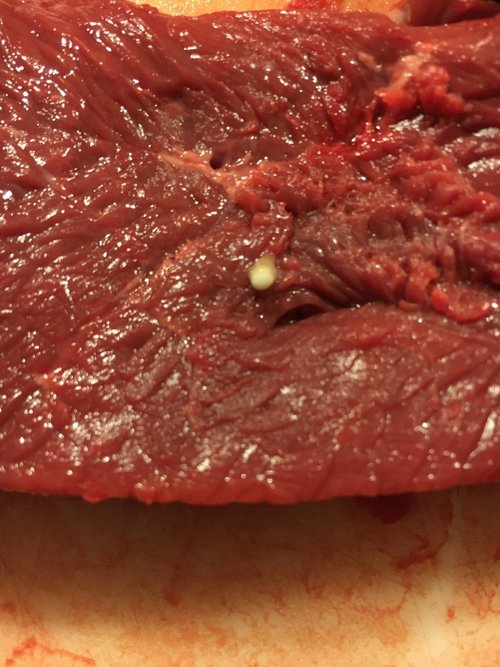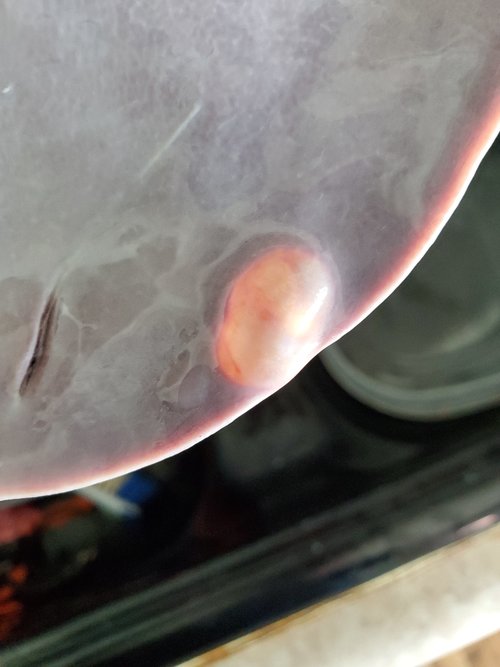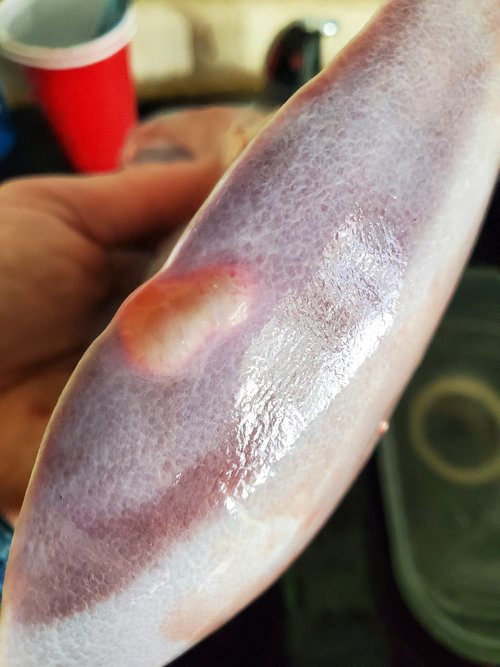PsRpOiGrRiAtM
Well-known member
- Joined
- Aug 28, 2017
- Messages
- 359
I’ve found 3 of these cysts in my elk as I’m butchering it. I popped the first two, thinking they were some sort of insect eggs, but further investigation has me concerned. Internet searching and images suggest tapeworm cysts. Have you guys ever experienced anything like this? If so, what did you do, and any advice? I’ll most likely be calling fish and game tomorrow.







